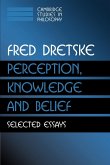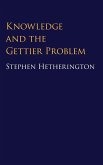When we affirm (or deny) that someone knows something, we are making a value judgment of sorts - we are claiming that there is something superior (or inferior) about that person's opinion, or their evidence, or perhaps about them. A central task of the theory of knowledge is to investigate the sort of evaluation at issue. This is the first book to make 'epistemic normativity,' or the normative dimension of knowledge and knowledge ascriptions, its central focus. John Greco argues that knowledge is a kind of achievement, as opposed to mere lucky success. This locates knowledge within a broader, familiar normative domain. By reflecting on our thinking and practices in this domain, it is argued, we gain insight into what knowledge is and what kind of value it has for us.
"Achieving Knowledge: A Virtue-Theoretic Account of Epistemic Normativity is an admirable piece of work, a well-argued and insightful book. It is a strength of the book that Greco has read widely on the topic and attempts to synthesize much of what has been written."
--George Lazaroiu, PhD /IISHSS, New York, Review of Contemporary Philosophy
--George Lazaroiu, PhD /IISHSS, New York, Review of Contemporary Philosophy








